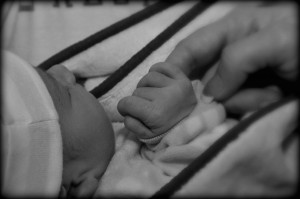Punish the Rapist, Welcome the Child: Interview
 Lianna Rebolledo was 12 years old when two men kidnapped her while she was walking to a local shopping mall. Nine months later she gave birth to a baby girl. Today she travels to shelters all over Latin America giving hope to girls pregnant from rape by sharing her story.
Lianna Rebolledo was 12 years old when two men kidnapped her while she was walking to a local shopping mall. Nine months later she gave birth to a baby girl. Today she travels to shelters all over Latin America giving hope to girls pregnant from rape by sharing her story.
I sat down with Lianna in Los Angeles to get her perspective on the increasing pressure on UN delegates to declare abortion a right under humanitarian law in response to rape.
LR: The doctors told me to abort my baby. I asked them if it would take away the pain of the rape. They said no. I didn’t see any reason to punish my baby for what those men did.
SY: What happened to the men? Were they ever punished?
LR: No. Nothing happened to them. It was extremely violent. The scars on my face are not as visible now, but I still cannot see well from my right eye.
SY: There is a move at the UN to make abortion a right under humanitarian law as a way to help women survivors of rape in conflict. What would you say to UN delegates about that?
LR: Abortion would be like a double rape. That was pain I didn’t need. I wouldn’t heal by punishing my baby. We need to fear rapists, not our own child. Why should we give her the death penalty when we are trying to rescind it for criminals?
SY: How old are the survivors you talk to in Latin America and where do you meet them?
LR: They are between nine and eighteen and I meet them in shelters. They have been taken away from their families. Some are pregnant and others already have their babies. I have been to Mexico, Chile, Ecuador, Peru, Paraguay, Argentina and the US. I also talk to members of their Congress, their National Assemblies. There is a lot of pressure to change the laws in Latin America to liberalize abortion for babies conceived after rape.
SY: What do you tell the women and girls?
LR: I want to bring them hope. What you went through doesn’t define you. You still have worth and dignity. Your life doesn’t end because you have a baby.
I ask the politicians, “What does a life cost?” And I tell them, “When you take away one life, you change the world. When you save one life you change the whole world.” I tell them, “You are here because your mother said yes to life. You don’t have the right to decide who has the right to live or die.”
I grew up in a violent home in Mexico City. After the incident I got to LA. I was 13 but had to raise my little girl. I was emancipated at 16 and we finally moved to an apartment. It was hard, but I always worked. I graduated from UCLA in journalism and got a good job. My daughter also graduated from college. I tell the girls they can do what I did.
SY: What do you tell your daughter about the rape?
LR: The way my daughter saved me is through her love. Keeping her was saving two lives—hers and mine. She was the one who kept me going. Now I see that my experience was meant to bring a message of hope to others who have suffered the same way.

